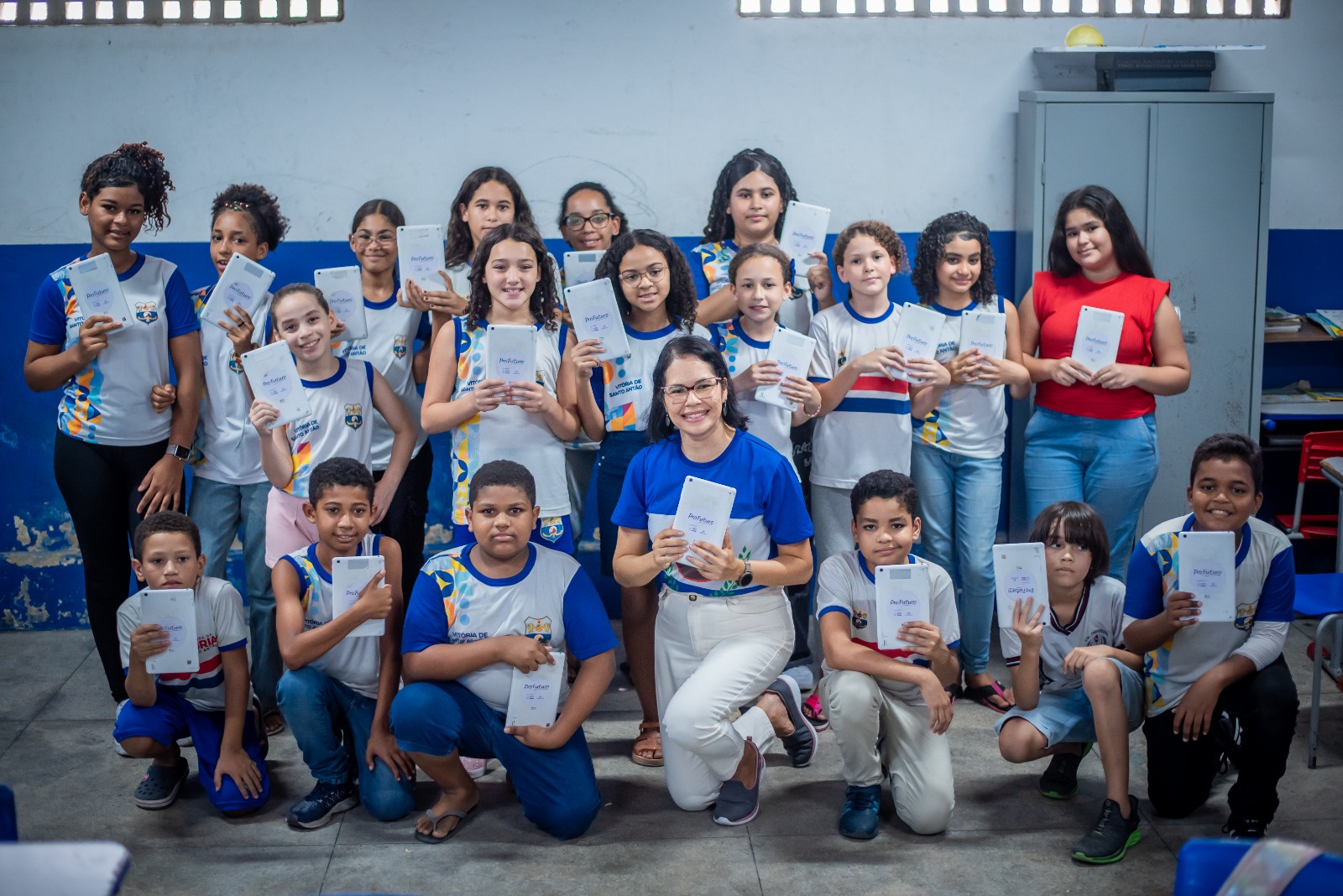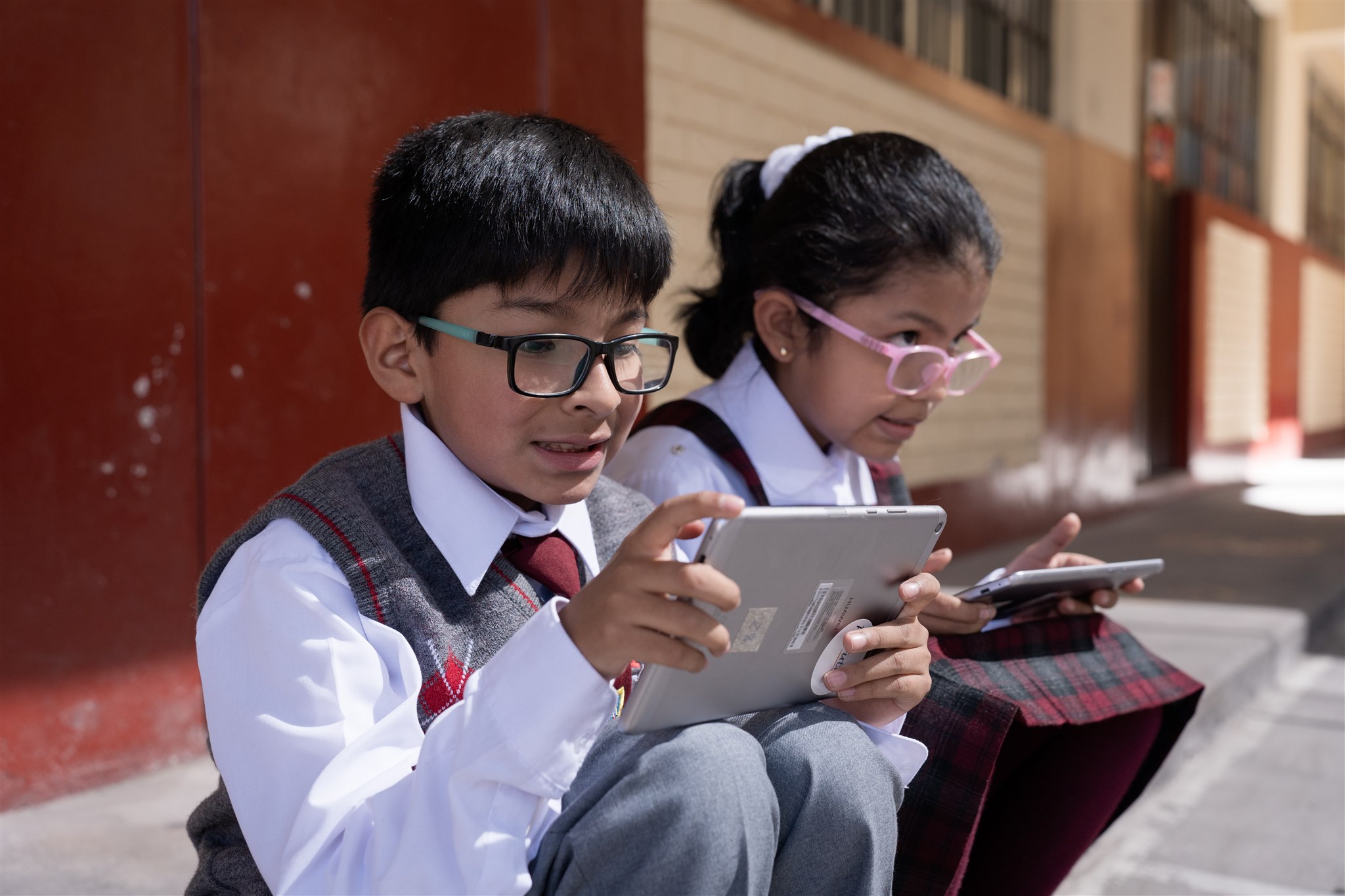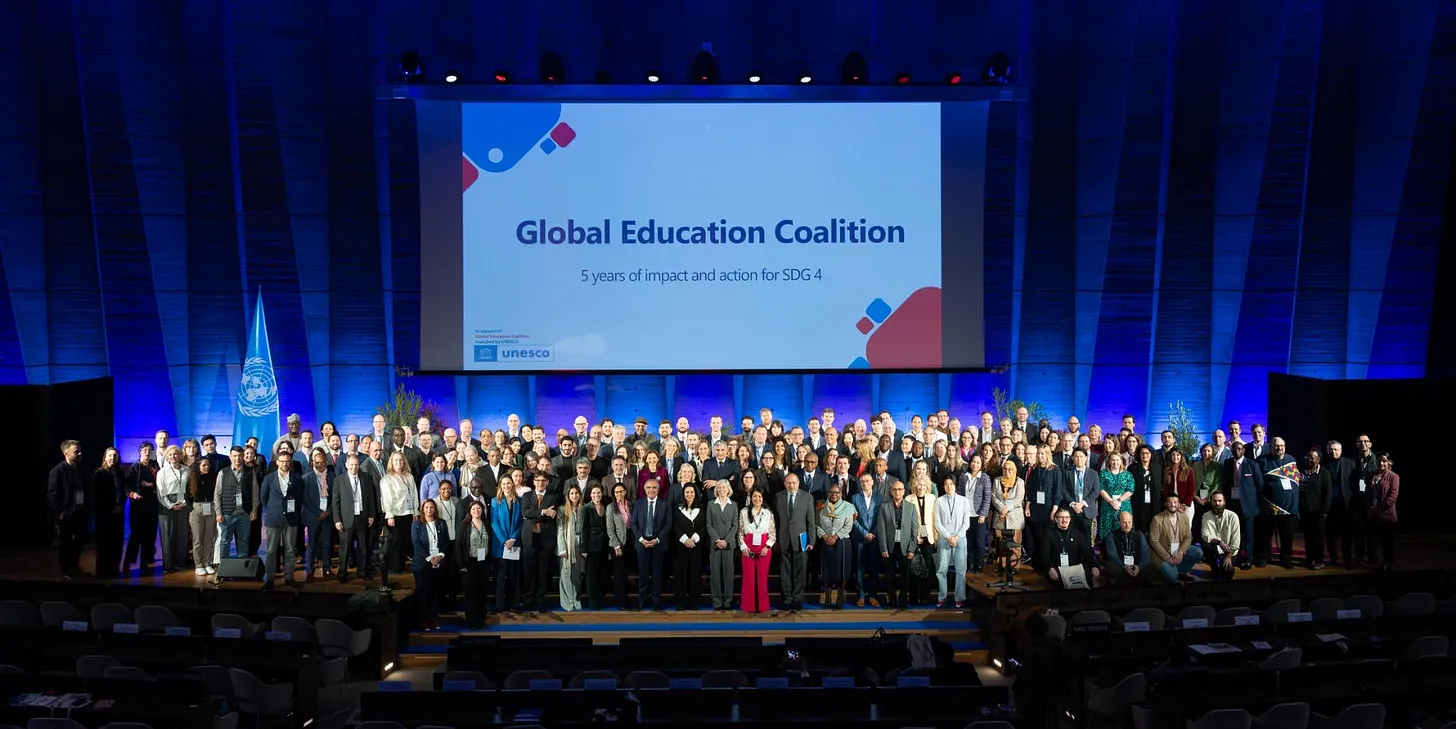On 25 May, coinciding with Africa Day, ProFuturo organised the event: The transforming power of e-ducation in Africa, a dialogue on the challenges and opportunities of education on the African continent. The meeting was co-organised by ProFuturo, Casa África, UNHCR, Empieza Por Educar, Entreculturas, Save the Children and World Vision, with the support of Planeta Futuro and Mundo Negro. You’ll soon be able to relive and replay the event on ProFuturo’s YouTube channel.
The state of education in Africa
The transforming power of e-ducation in Africa meeting focused on Africa and the progress that has been made in the field of education in recent years. The event was attended by representatives of the different organising entities and was moderated by Alejandra Agudo, a journalist from Planeta Futuro. The hybrid format (face-to-face and virtual) made it possible for attendees to follow the streaming and the conversation created on social networks through the event’s hashtags: #Africa Day and #EducateTransform.
Juan Jaime Martínez (Head of Casa África’s Culture and Education Department), Lola Huete (Director of Planeta Futuro) and Enrique Bayo (Director of Mundo Negro) kicked off the event by analysing the way in which Africa is reported in Spain. They reflected on how a comprehensive narrative, including positive news, can help change perceptions of the continent and contribute to its transformation.
Lola Huete began her presentation with this statement: “It is forgotten that the African continent has 1.3 billion inhabitants and that it generates an impressive amount of information and very powerful stories.” As for Enrique Bayo, who has six decades of experience reporting on Africa, he stressed the importance that people who talk and write about Africa have to first know and love Africa.
The connection with Firmin Edouard Matoko, Assistant Director-General for Priority Africa and External Relations at UNESCO, allowed us to approach the situation of education in Africa in a quantitative way. As Firmin E. Matoko commented, according to UNESCO’s data, an additional 69 million teachers are currently needed worldwide to achieve and meet Goal 4 of the SDGs. He also confirmed that this is Africa’s greatest challenge in education, teacher training: “Expanding access to school education is a priority. In 2019, school enrolment levels in Sub-Saharan Africa stood at just 21% and at 41% in North Africa.”
A transforming conversation
The event’s panel discussion included Magdalena Brier (Director General of ProFuturo), Jacqueline Strecker (Connected Education Lead of the UNHCR), Beatriz Morilla (Director General of Empieza Por Educar), Luca Fabris (Coordinator of the Africa and Asia Department of Entreculturas), Andrés Conde (Director General of Save the Children Spain) and Javier Ruiz (Director General of World Vision Spain).
Based on their experience in Africa, the speakers analysed the challenges and opportunities for education on the continent today. The conversation was organised around four core themes: “The impact of the COVID-19 pandemic on education”; “School closures in fragile contexts: beyond the educational consequences”; “Improving educational quality to achieve a real transformation” and “Refugees: education in emergency situations.”
COVID-19 has left an unprecedented scene in education in which the education gap and digital divide are getting dangerously precarious in many countries on the African continent. Jacqueline Strecker pointed out the importance of working with local communities which are vulnerable to COVID-19 and adapting to the new situation. As regards Luca Fabris, he spoke of the need to work to ensure that the least developed countries do not become the most vulnerable in the post-covid era.
Despite all this, the guests highlighted the possibilities for growth in the African educational context. Beatriz Morilla emphasised the power of teachers as a driving force in transforming education: “If there is one thing that makes African teachers stand out, it is their resilience. The teacher is the magic ingredient that makes that transformation that much more powerful,” she said. As for Magdalena Brier, she confirmed the need for digital education as a means of providing quality education for every child in the world. “The pandemic has shown us the possibility of reaching populations and children who are totally inaccessible to us”, added Andrés Conde.
ProFuturo in Africa
Our digital education programme ProFuturo, created by Telefónica Foundation and “la Caixa” Foundation in 2016, is currently operating in 18 countries in Africa. There we implement our programme in collaboration with local partners and global allies. In this way we can be found in: Angola, Benin, Eswatini, Ethiopia, Equatorial Guinea, Kenya, Liberia, Madagascar, Malawi, Morocco, Nigeria, Rwanda, Senegal, Sierra Leone, South Africa, Tanzania, Uganda and Zimbabwe.
At ProFuturo, we bring quality digital education to children living in vulnerable environments and promote career development for teachers on the continent. In addition, we work in refugee contexts to ensure access to education for children who have been forcibly displaced.
Since 2016, ProFuturo has trained 31,538 teachers in Africa and contributed to improving the education of 984,546 children on the continent. The programme is currently implemented in 1,599 schools in Africa.
In 2020, we at ProFuturo are stepping up our support for education in Africa. Despite the challenges posed by the Covid-19 pandemic, we managed to train more than 22,000 teachers and contributed to improving the education of 792,593 children. This is 302% more than in 2019. To achieve this, we develop creative solutions to take education out of the classroom and narrow the digital gap.






